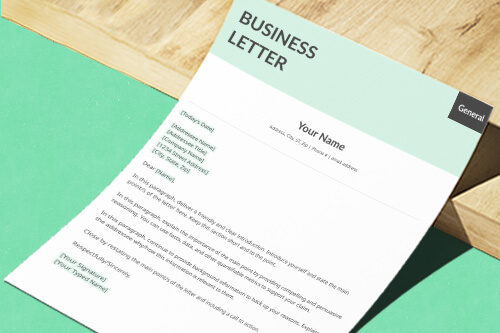In today's world of instant messaging and social media, the art of writing business letters may seem outdated. However, it remains an essential skill in the business world. Business letters are formal documents that convey important information and can make or break a deal. They are a reflection of your professionalism and can leave a lasting impression on the recipient. In this article, we will explore the art of writing business letters and provide you with tips to make your words count.
The Importance of Business Letters
Business letters are a formal means of communication used in the corporate world. They are used to convey important information, such as job offers, proposals, contracts, and other business-related matters. Business letters are often sent to clients, partners, suppliers, and other stakeholders. They are an essential part of business communication and can help build relationships and establish trust.
The Benefits of Writing Good Business Letters
Writing good business letters has numerous benefits. Firstly, it helps establish your credibility and professionalism. A well-written letter shows that you are serious about your business and have taken the time to craft a thoughtful message. Secondly, it can help build relationships with clients and partners. A good letter can make a lasting impression and set the tone for future interactions. Finally, it can help you achieve your goals. Whether you are seeking a job or closing a deal, a well-written letter can increase your chances of success.
Tips for Writing Effective Business Letters
1. Know Your Audience
Before you start writing your letter, it's important to know your audience. Who is the recipient? What is their position in the company? What is their level of knowledge about the subject matter? Knowing your audience will help you tailor your message to their needs and interests.
2. Be Clear and Concise
Business letters should be clear and concise. Avoid using jargon or technical language that may be difficult for the recipient to understand. Use simple and straightforward language that is easy to read and comprehend. Keep your sentences short and to the point.
3. Use a Professional Tone
Business letters should be written in a professional tone. Avoid using slang or informal language. Use a formal greeting and closing, such as "Dear Mr. Smith" and "Sincerely." Use a respectful tone throughout the letter.
4. Use Proper Formatting
Business letters should be properly formatted. Use a standard font, such as Times New Roman or Arial, in 12-point size. Use single spacing and leave a blank line between paragraphs. Include your contact information, such as your name, address, phone number, and email address.
5. Proofread Your Letter
Before sending your letter, proofread it carefully. Check for spelling and grammar errors. Make sure your message is clear and concise. Ask someone else to read your letter and provide feedback.
Conclusion
In conclusion, the art of writing business letters is an essential skill in the business world. It can help establish your credibility and professionalism, build relationships with clients and partners, and help you achieve your goals. By following these tips, you can write effective business letters that make your words count. Remember to know your audience, be clear and concise, use a professional tone, use proper formatting, and proofread your letter. With these skills, you can become a master of the art of writing business letters.
